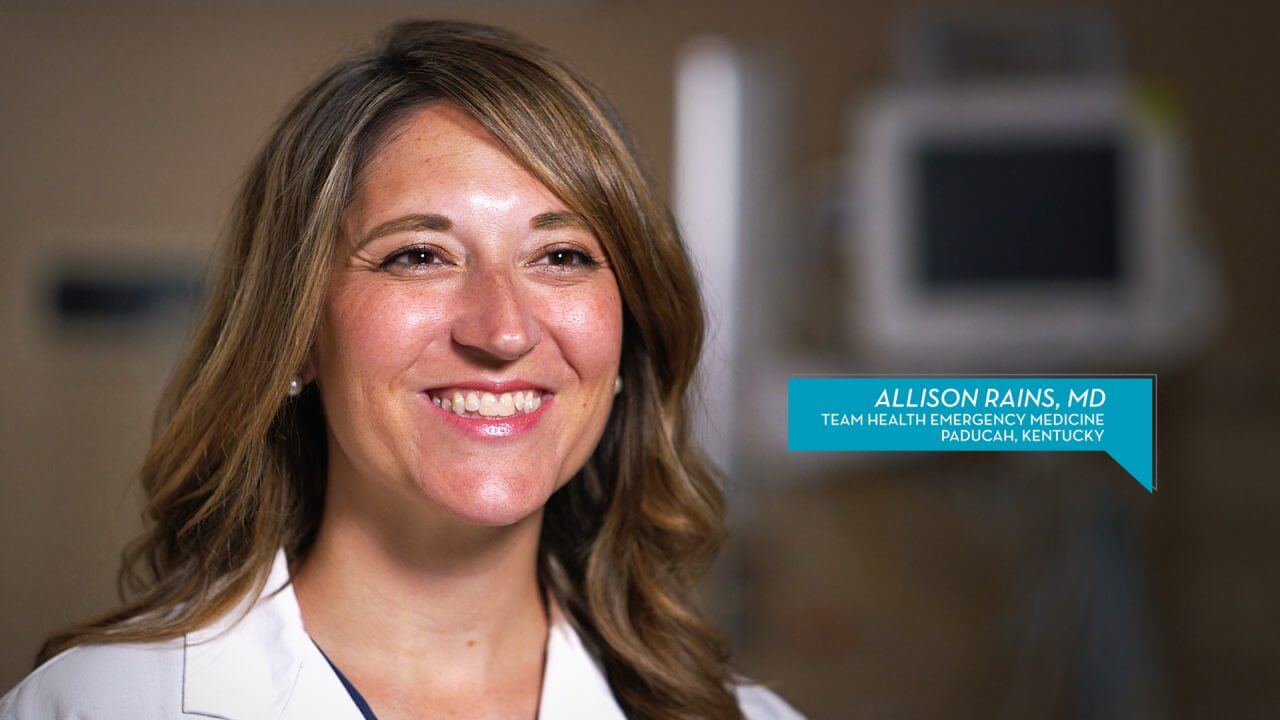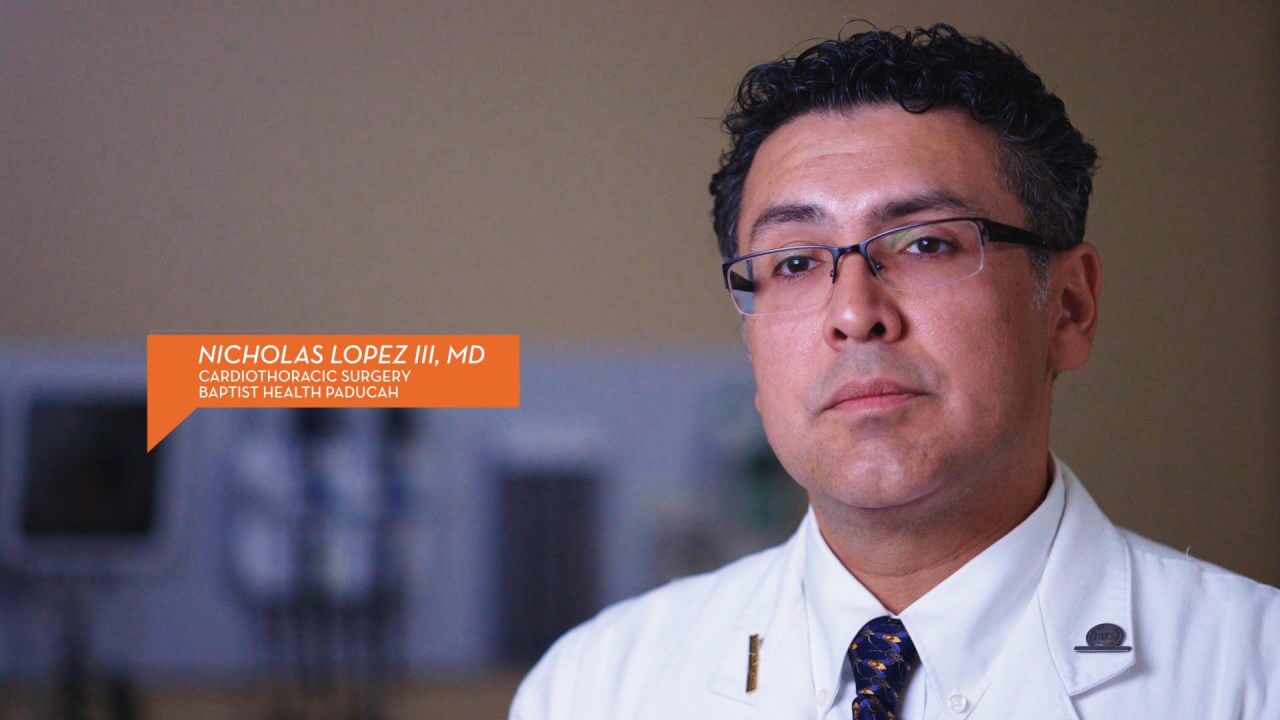Thoracic Aortic Aneurysm Repair & Treatment in Paducah
Baptist Health Paducah: Thoracic Aortic Aneurysm Repair & Treatment
Medical advancements over the past 20 years have allowed doctors to repair thoracic aortic aneurysms with minimally invasive procedures. Learn how an aortic aneurysm is treated at Baptist Health.
Thoracic Aortic Aneurysm Repair & Treatment HealthTalks Transcript
Griffin K. Bicking, DO, Vascular Surgery:
The aorta is the largest artery in the body, and it carries oxygen-rich blood to certain parts of our body and all the major organs in our belly, our arms and our brain. Now, when we talk specifically about the thoracic aorta, we’re talking about aneurismal disease. The aneurism is a weakening or a ballooning out of the artery. The worst outcome of this is it rupturing, and most people don’t survive that, when it does rupture.
Things that cause thoracic aortic aneurysm are family history, smoking, hypertension, connective tissues disorders, like Marfan and Ehlers-Danlos syndromes, and bicuspid aortic valves.
Jason Cumbers, MD, Vascular Surgery:
Generally, in the past, the treatment for aneurisms has been an open surgical repair. I think that’s been the standard up until about the last 15 or 20 years, but technology now has advanced in the vascular space quite a bit, and we can perform what’s called an endovascular repair of aneurysms. What that means is us being able to use a minimally invasive approach, coming through the groin using catheters and wires to effectively reline the aorta using a stent graft and exclude the aneurysm.
Dr. Bicking:
Traditionally, when we talk about endovascular surgery and all the advances in vascular surgery, people think that you need to go to the big city into the tertiary care centers. My partner and I have both trained in these big cities and trained at tertiary care centers where we had access to amazing technology. What’s great about being here is we’re able to bring that technology to an area like this, in Paducah, and offer this great service to the community. I think both of us are very well trained in this space, and we can offer patients getting well closer to home instead of going out of town.

.jpg?rev=5dbd88f4012d476db50e2d19142fb14a)

